How Floods Displaced Residents In Nigeria’s Southwest Communities
In this report, victims in Southwest Nigeria narrate their ordeal.
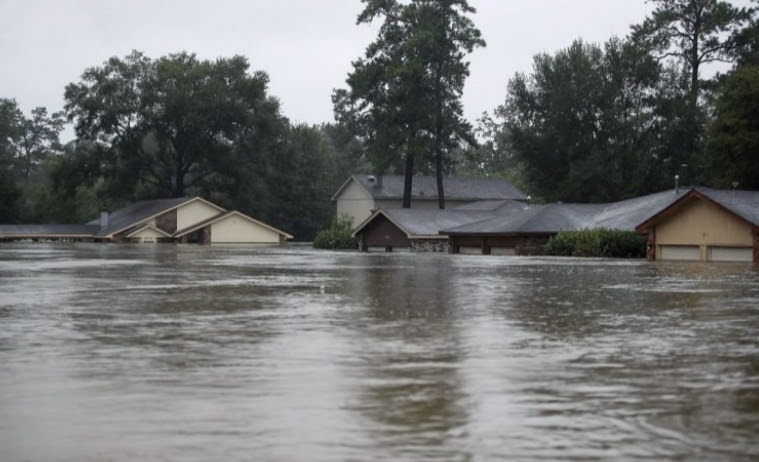
The rain had just stopped early morning of Thursday, Sept. 3, 2021, when our reporter stepped out to track flooding impact on various communities in Abeokuta, capital of Ogun State in Southwest Nigeria.
Olakuleyin Folake is one of the affected persons. The food seller looked tired and frustrated when HumAngle got to her shop at Ijeja community. A day before, Folake slept in a church because her shop had lost comfort. The rain determines where she and her two children sleep at night.
She was frustrated that the flood which displaced her from her home in 2018 has now threatened her shop. She lost all valuables during her first flooding experience. Two years later and she is yet to recover from the loss.
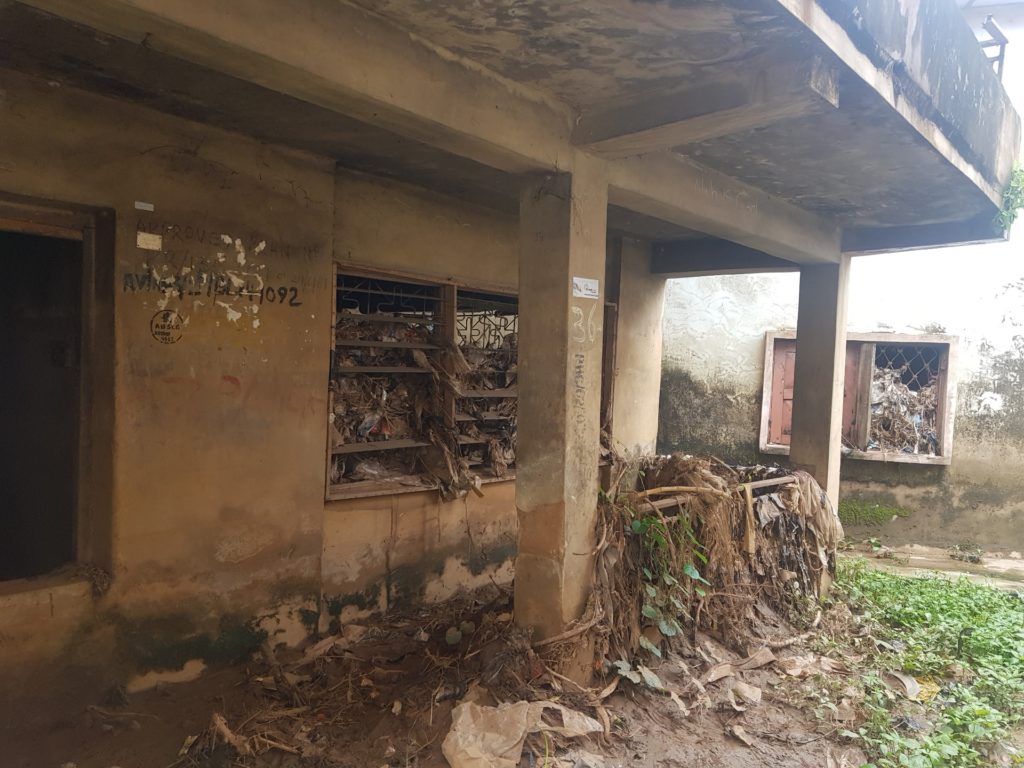
“The first time I became a victim of flood was in 2018. I had to run out of the house with my children. The flood carried all my valuables. My husband, a bricklayer, ran away from home. He left for the village and since then, I haven’t set my eyes on him.”
“My generator, freezer, chairs, clothes, and all the properties I had, finished that year. The landlord of the house ran away as well. I took my children to church where we were sleeping till the rain ended. We later returned to the house during the dry season.”
“By the time I was going to return home with my kids, I was already in debt. I had 10 bags of rice in the house and the flood washed them away. I also had over N200,000 in the wardrobe but it was all gone.”
Folake got donations coupled with some gift items from her church members. She got a big mat and returned to the same house with her children.
“Even if I wanted to leave, where would that be? I had to return to the house. I returned back to my food business and was trying to feed my kids,” she narrated.
Unfortunately, while sleeping sometime around midnight of Aug. 24, 2020, the flood came again. This time, she made the decision not to return to the house. Since then, she has been living in a wooden shop.
“I don’t know what tomorrow holds if this rain persists.”
Worsened by climate change
According to a study by the United States Environmental Protection Agency, climate change resulting from global warming is attributed to anthropogenic influences, leading to many consequences, one of which is flooding.
“As warmer temperatures cause more water to evaporate from the land and oceans, changes in the size and frequency of heavy precipitation events may in turn affect the size and frequency of river flooding,” research revealed.
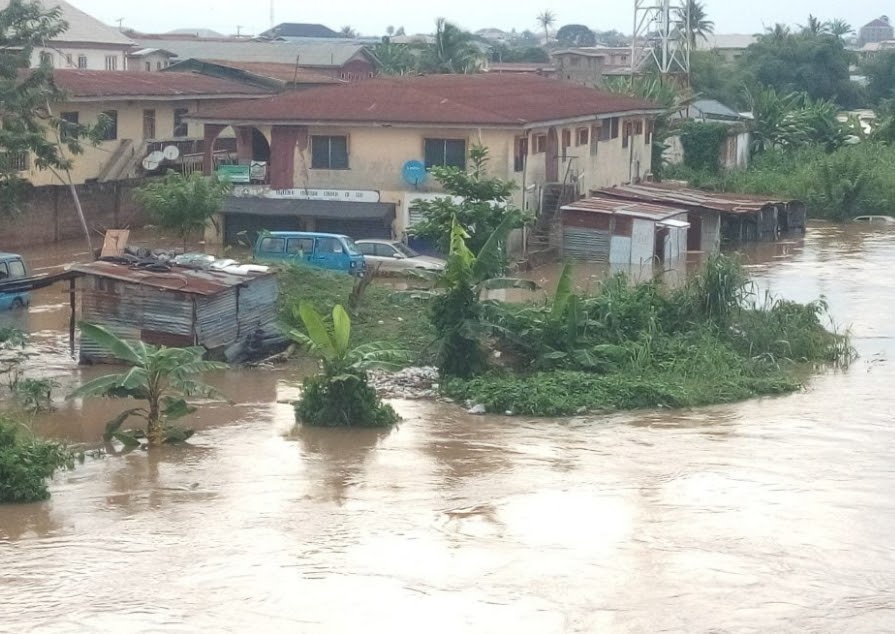
The National Emergency Management Agency (NEMA) said in 2019 that floods had displaced approximately 1.9 million Nigerians and the country that year recorded 158 fatalities. It said no fewer than 129,000 persons were affected in 2020 and at least 69 people lost their lives in flood disasters.
Report has it that variations in temperature, rainfall and humidity associated with the science of climate change in Nigeria affect climate-dependent sectors, causing low crop yield, food shortage, loss of shelter and road networks among others.
Rainfall variation is projected to continue to increase, hence many communities are vulnerable to flooding.
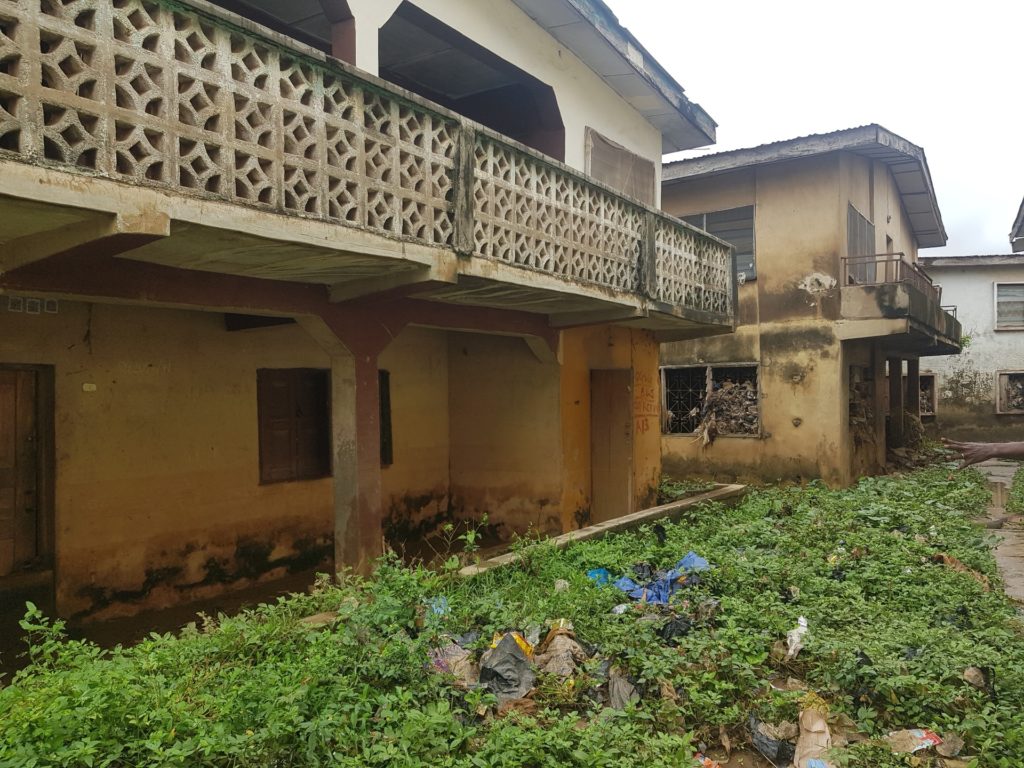
“Extreme flooding will continue to be concentrated in regions where humans have built on floodplains or low-lying coastal regions. More extreme flooding must be expected, and for the towns and cities where flooding has already occured, theirs will no longer be a ‘once in a lifetime’ risk but now far more frequent,” the United Nations said in 2020.
Flood of tears
Many families have been displaced and rendered homeless in various communities in Abeokuta, such as; Ijeun Tuntun, Isale-Oja, Amolaso, Ijeja, Adedotun, Ago-Ika, and Itere.
Aside from Folake, who is now finding life difficult in the Ijeja community, many have died due to heavy flooding in the area. One of those who have lost their lives to the incident is Segun Ojo, a retired soldier who collapsed two months ago after flood took over his building.
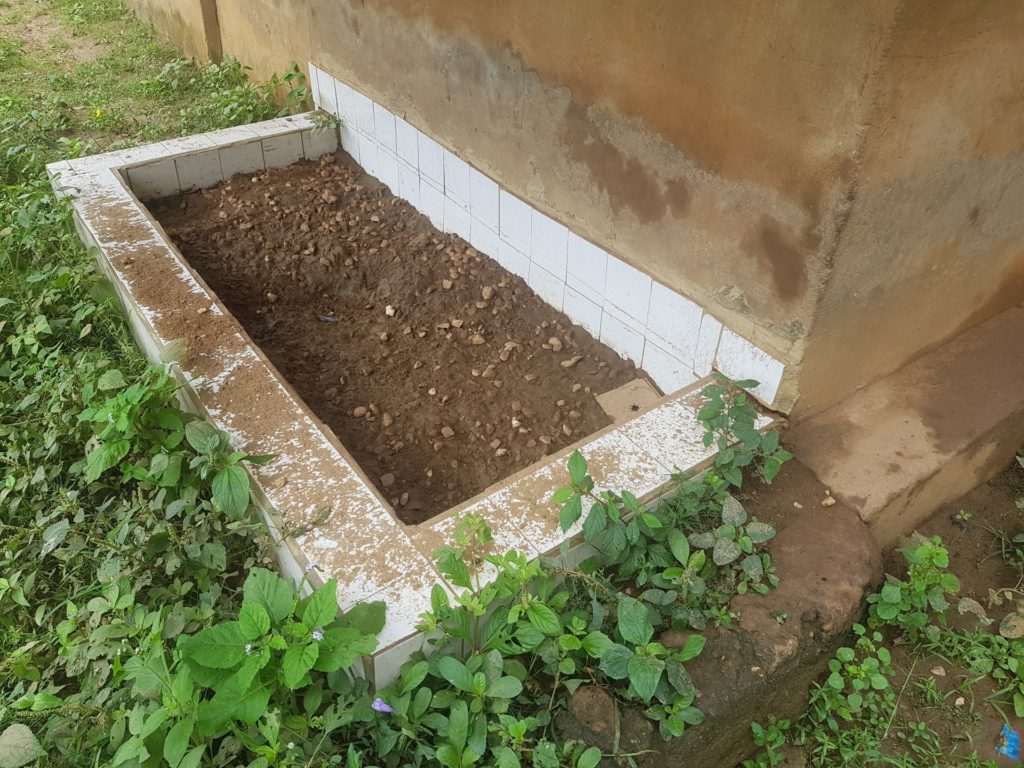
“There was an old soldier who collapsed when he came to get his house rent. He saw the house in water and all the tenants had left. He collapsed immediately. He was later said to have had a stroke and died as a result,” a community leader, Taiwo Ajadi told HumAngle.
“We have had this challenge for years. The government does not have provisions for us. We went to them but they insisted on demolishing our houses, claiming they are located in flood prone areas. We used to have over 100 houses in the community but people can only live in three of the houses now.”
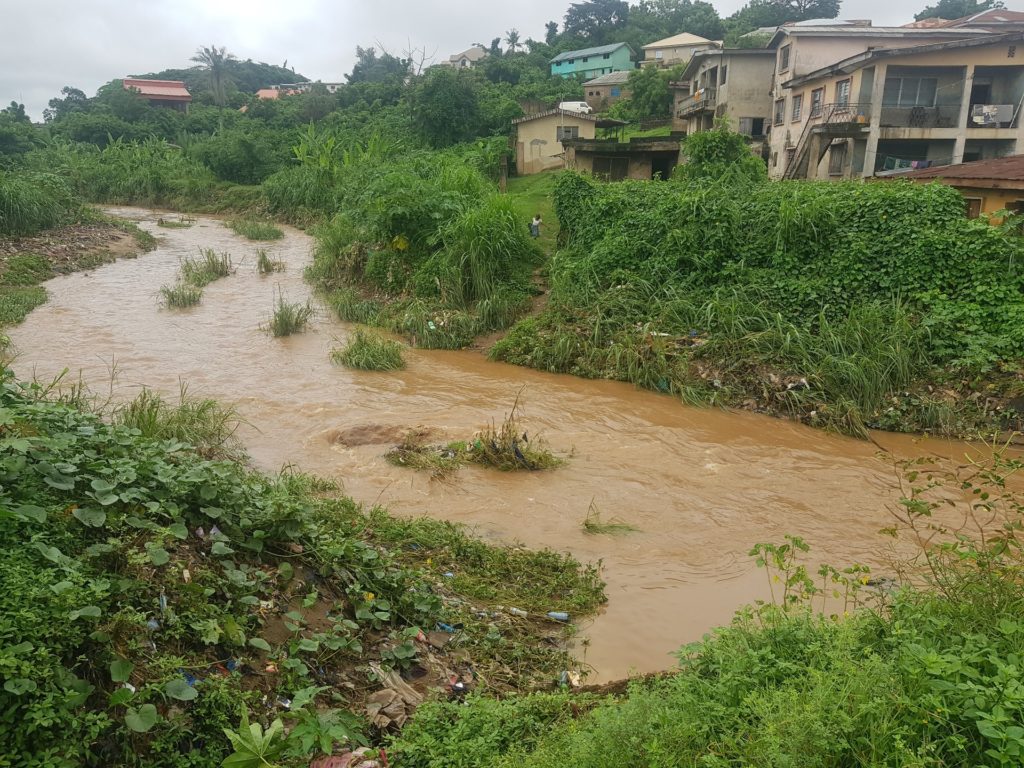
Ajadi said rather than fix drainage causing damage to communities in Abeokuta, “the government marked houses for demolition without talking about compensation for the landlords. That’s just inhumane.”
Exhumed corpse
Six years after the Sunmonu family buried their mother in her house, they exhumed her remains at Amolaso community because of repeated floods.
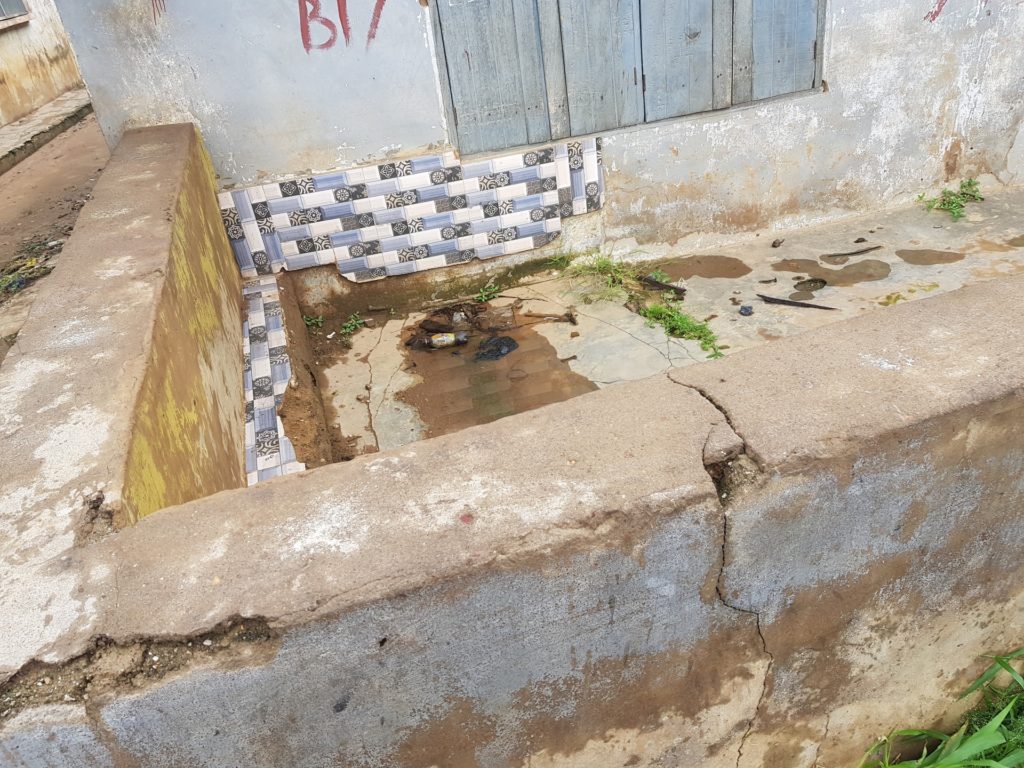
A youth leader at Itere community, Oluwanbe Semiu, wondered why “authorities are hell bent on demolishing their house without compensation.” Asked if the houses have the government’s approval, he responded, “approval is not what we are saying. How many houses really have approval? People bought their lands and built on them.”
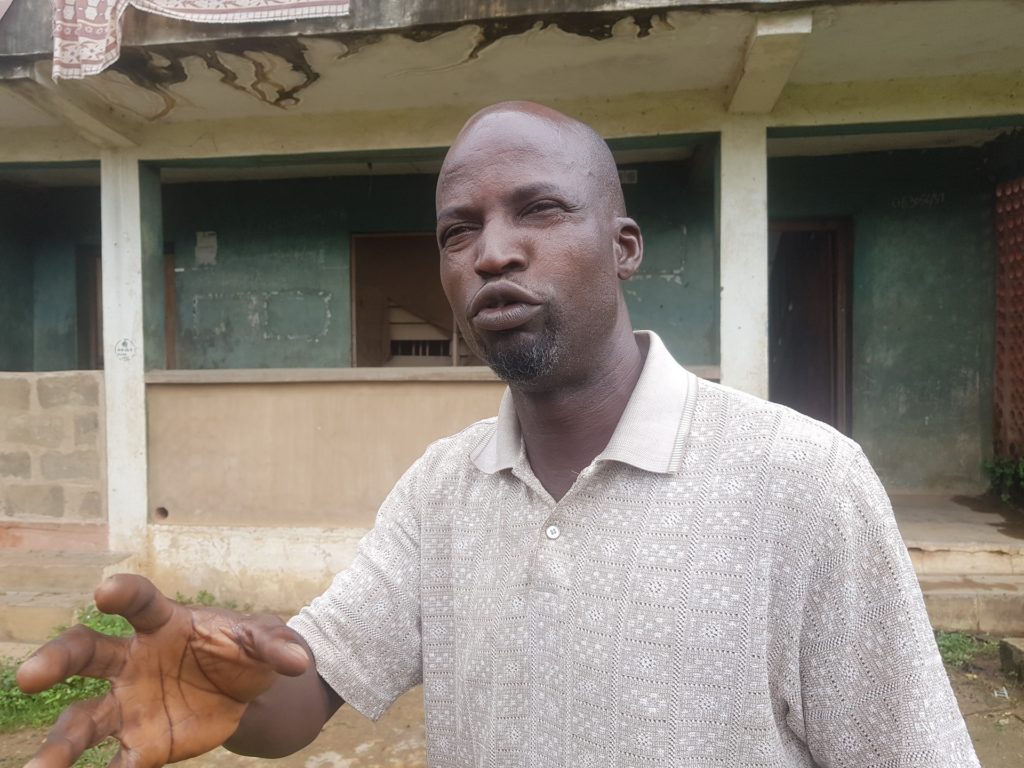
The Special Adviser to Governor Dapo Abiodun on Environment, Ola Oresanya, told HumAngle that most of the affected houses do not have government approval. He also said the government alerted the residents before the rainy season started.
“We have done our profiling and the houses in the places you visited are found to be illegal because they have no approval. We are not saying we want to demolish for now. The state government created flood relief camps for them to relocate there temporarily and then go back to their houses after the rainy season, ” he said.
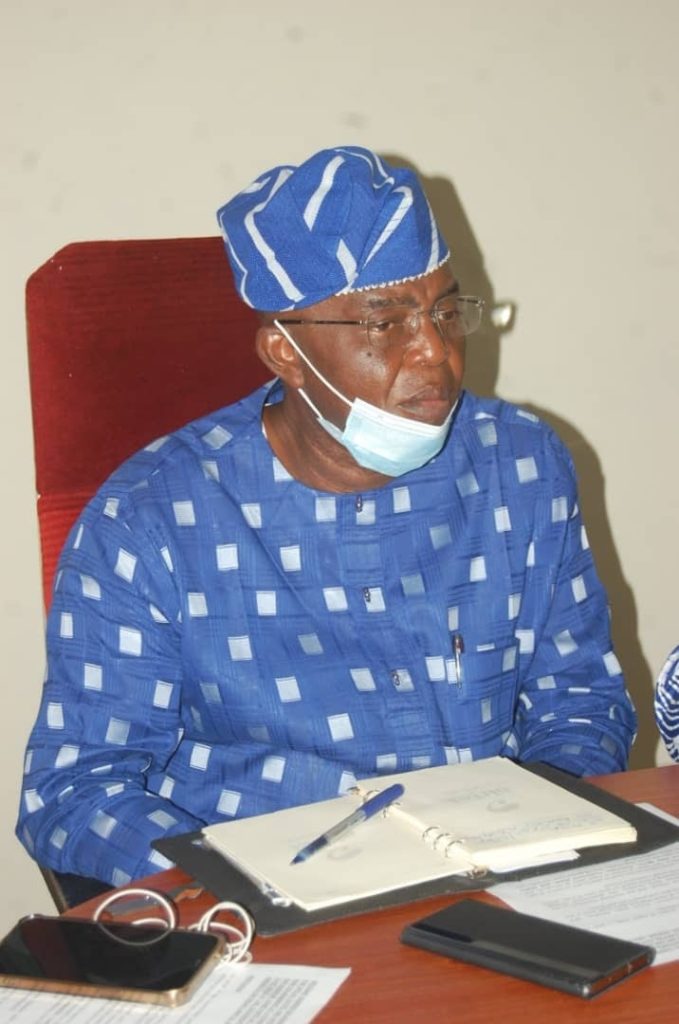
He said the government understands the plight of those displaced by flood and would love to dialogue with them anytime they agree to vacate their houses before they collapse.
“We can’t blame them, there was a gap in previous governments’ regulations. Those houses should not have been allowed by the government. The residents are victims of circumstances. Aside from the relief camps, we are aggressively working on our drainage. Dredging is going on in all parts of the state and we are also not relenting on advocacy,” the official concluded.
Bitter tales in Osun
Residents of Osogbo, Osun State capital are yet to recover from the deaths, destruction, and losses that marred most parts of the city on Aug. 3, 2021. Aside from reports on those who lost their loved ones, many citizens continue to count their losses to the tragic incident.
Damaged household items such as mattresses, fridges, electronic gadgets, clothes and rugs, among others, still littered the Oke-Baale, Awosuru, Alekuwodo, Obate, Onireke, Sasa, Igbo-Amu and Itaolookan areas of the capital city days after the flood.
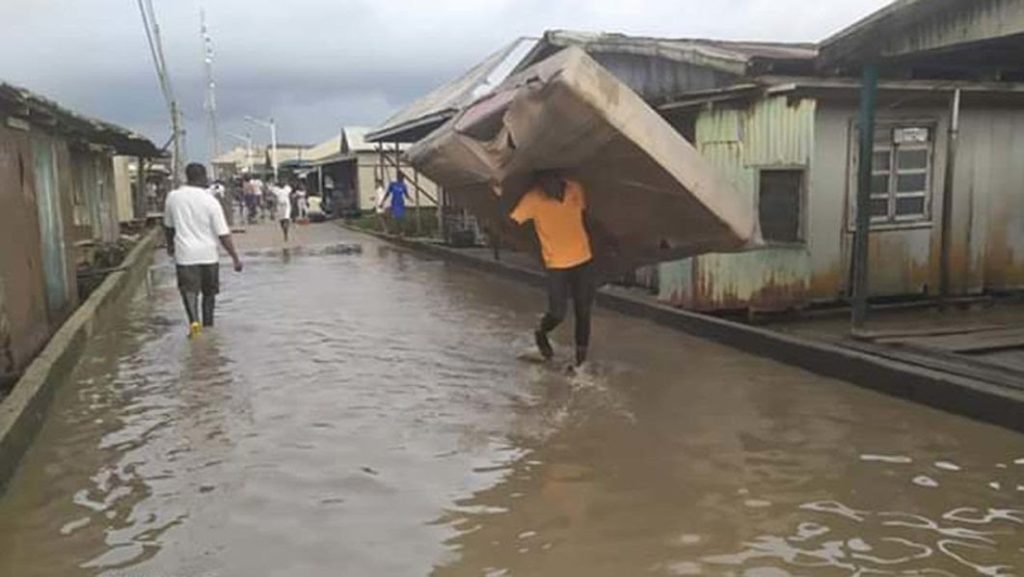
Bilikis Ismail narrated how the August flooding displaced her and her mother along with their tenants in Obate area of Osogbo. She said family and friends accommodated them separately after they lost their belongings to the menace.
“We have thirteen rooms in the house but almost everyone has gone. After the previous downpour, we had to leave. Our money and goods were washed away by the flood. The entire building was almost covered by the water. We were not bothered about properties, we were just concerned about our lives and glad we escaped.”
Speaking on some of the valuables that got missing in the flood, Balikis said. “I sell kola nuts and I had about N200,000 worth of goods at home. They were destroyed by the flood. We can’t even calculate the amount that was destroyed. The river is not even close to this place. Yet, water is destroying houses.
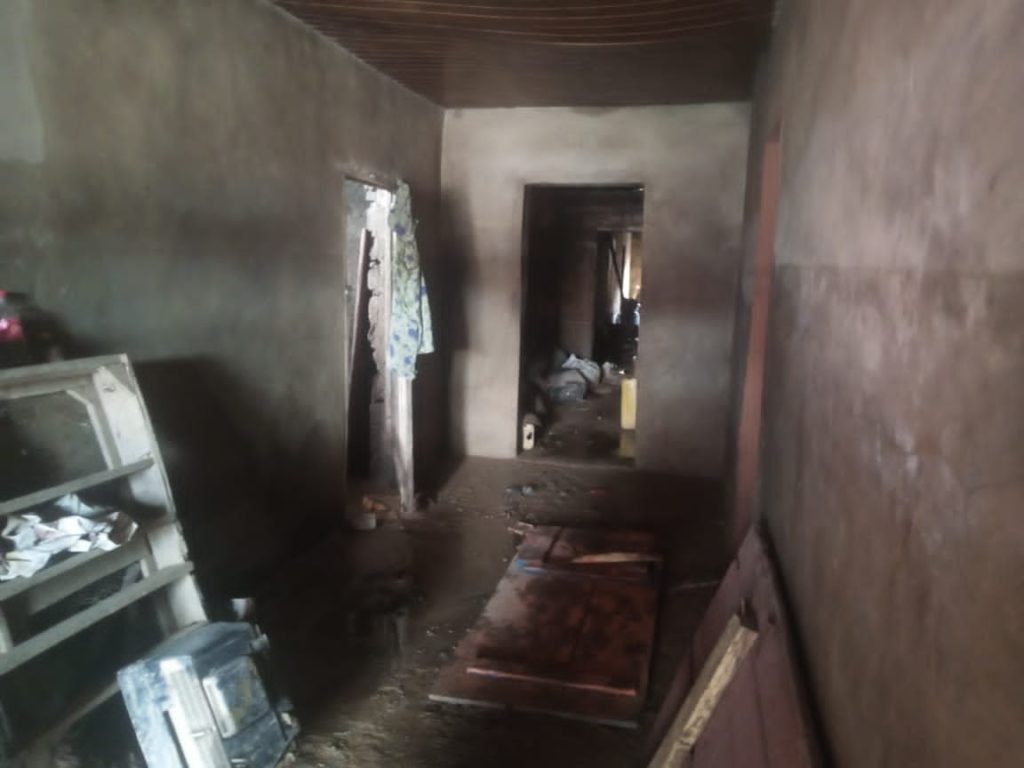
“We seek solutions. The government should help us. Government should come to our aid. They should also help the less privileged. We were told to come to the government secretariat. We went there the same week of the first flood disaster but nothing has come out of it.”
Another victim, 26-year-old Olatunji Omotayo said the flood displaced him from his house in Akepe area of Osogbo and he has since been staying in his shop.
The fashion designer told HumAngle that his landlord has abandoned the house for tenants to look after following repeated floods.
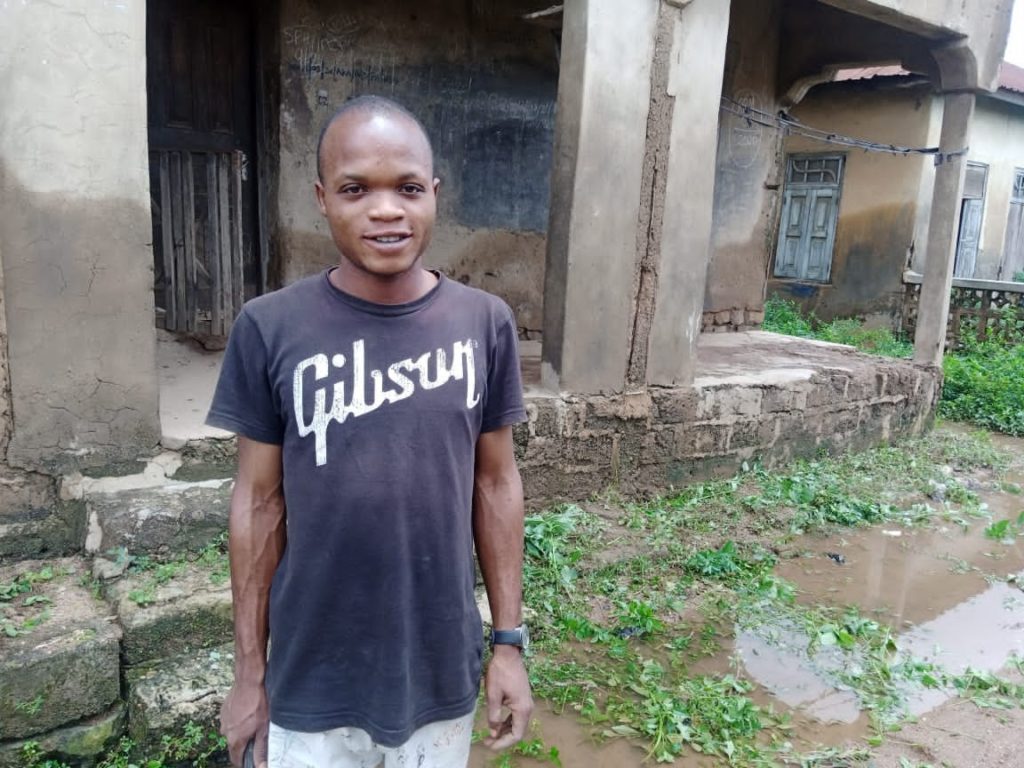
Pointing to some buildings in the community, he said “some of these houses are deserted. Before the first rain in early August, I was always sleeping at home but the flood has displaced me. I sleep and bathe at my shop. Rain cannot be predicted. And to avoid unfortunate events, I had to stay away for a while.”
Speaking on the efforts of the government to ensure that lives and properties are saved, the Special Adviser to Governor Gboyega Oyetola on environment and sanitation, Rufus Oyegbile, said residents have more roles to play.
“Flood in Osun is not different from what is happening globally but we have been taking proactive measures through massive dredging. We have done various interventions across different local governments. We are clearing refuse in the canal and waterways.”
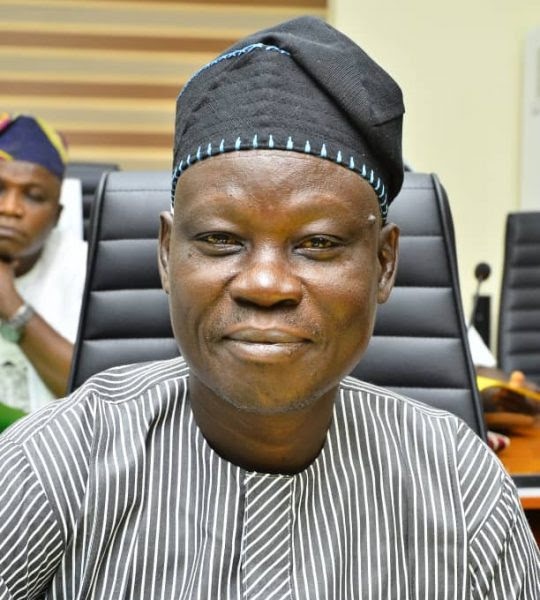
“The situation we had in Osun in early August was pathetic despite our efforts. We, however, realised that people are also contributing to this challenge. We are still sensitizing our people because they are not playing a positive role. They must cooperate with waste management to ensure that they don’t drop refuse in waterways.”
Possible solution
The World Health Organization (WHO) in 2018 said it is working closely with the Federal Ministry of Health, Nigeria Centre for Disease Control (NCDC) and NEMA to tackle flooding.
“Floods and their consequences (e.g. lack of clean water, lack of shelter) can lead to increased risks of infection due to water-borne and vector-borne diseases such as cholera and malaria.
“In addition, access to healthcare and essential drugs can be difficult due to the loss of health infrastructures,” Wondimagegnehu Alemu, WHO Country Representative in Nigeria said then.
Also, the Nigerian Meteorological Agency, the Nigerian Hydrological Services Agency and the Nigerian Emergency Management Agency have put everyone, especially the federal, state and local governments, on notice to prepare for heavy rainfall and possible floods.
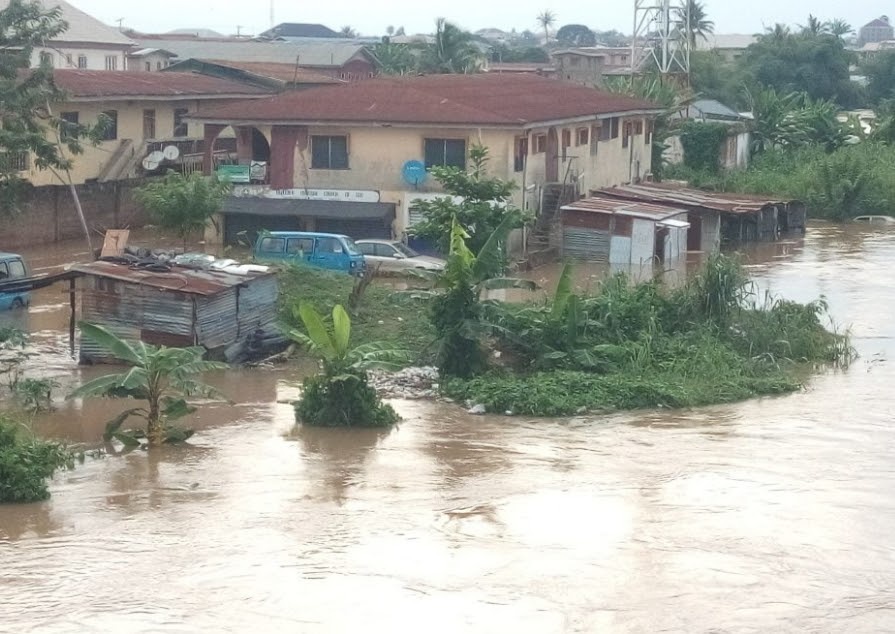
An environmentalist, Kingsley Ndimeme, who spoke to HumAngle on a possible solution, said to adapt to climate change, authorities must ensure they enforce policies that stop people from building in flood prone areas.
“States should stop building in flood-prone areas; and as well stop giving such building permits. Authorities must relentlessly discourage illegal construction of buildings on water courses and clean up water drains regularly to ensure that water is allowed to flow.
“They should also create artificial flood plains and allow natural flood plains to remain because they absorb major run-offs from the cities.”
He also advised the government and relevant stakeholders to aggressively “do public awareness campaigns through mass media channels to educate Nigerians on the negative impact of their activities on the environment.”
………………………….………………………….………………………….
This story was produced under the NAREP Climate Change Media 2021 fellowship of the Premium Times Centre for Investigative Journalism.
Support Our Journalism
There are millions of ordinary people affected by conflict in Africa whose stories are missing in the mainstream media. HumAngle is determined to tell those challenging and under-reported stories, hoping that the people impacted by these conflicts will find the safety and security they deserve.
To ensure that we continue to provide public service coverage, we have a small favour to ask you. We want you to be part of our journalistic endeavour by contributing a token to us.
Your donation will further promote a robust, free, and independent media.
Donate HereStay Closer To The Stories That Matter




